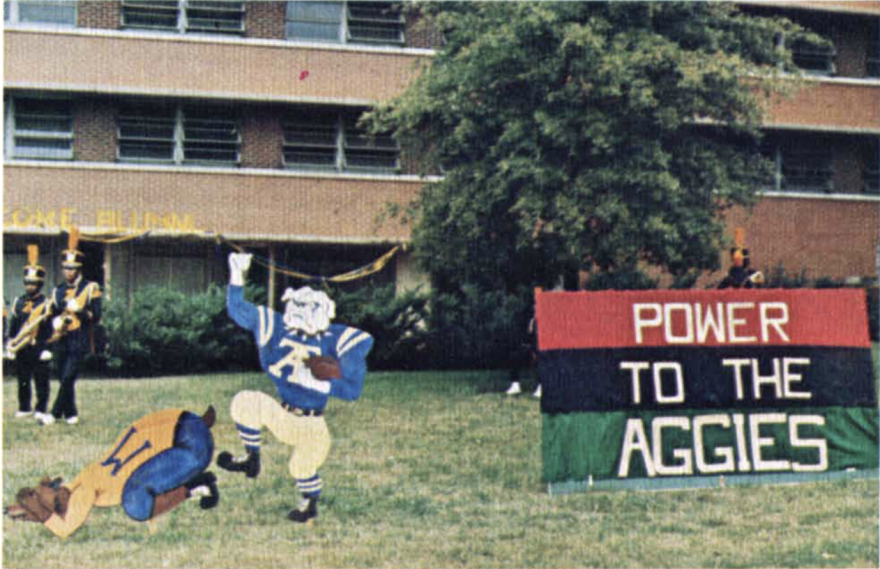Eccentric Soul: The Linco Label is a new collection that explores the history of Linco Records, a label that was founded in Greensboro by Walter Grady in the late 1960s. Though the label didn't produce any major national hits, its releases have become sought after by collectors. Now, for the first time, songs from the label have been compiled onto one record.
When listened to as a whole, the collection showcases what life sounded like on the campus of North Carolina A&T University during the early days of the Civil Rights Movement.
Jonathan Kirby produced the record and recently caught up with WUNC Music Reporter Brian Burns to talk about the collection and the history of Linco.
This is an excerpt of an edited transcript of that conversation. You can hear the full interview by clicking the LISTEN button at the top of this post.
Tell us about Walter Grady.

Walter Grady was somebody who everyone had an opinion on. People would call him "Shady Grady" because a lot of people believed that he had taken millions of dollars that should have been designated for them. But, you know, in all reality, Walter Grady was just sort of a local yokel. He was a mover and shaker. He was from the eastern part of the state, Dunn, North Carolina. He wound up in Greensboro, and I just think he had had childhood aspirations of producing a hit record. And so he got started in Greensboro.
I don't think he had aspirations of mediocrity. I think it was the top or nothing. He was going to be heavyweight champion, or nothing. He was always swinging for the fences. And with every record that was going to be the record. Every artist that was gonna be the artist. So he didn't do anything halfway. He was very thorough, very dedicated. And again, if something didn't take off, he'd go right back in the studio and try and get the next thing rolling.
Linco existed from 1968 to 1978 which is certainly an interesting time in American history. Talk to us a bit about the Civil Rights Movement in Greensboro at that time.
The civil rights movement has deep roots in Greensboro, and I really do think, having talked to so many people who went to North Carolina A&T during this period, they knew that they were going to carry that torch of Black excellence, of Black resilience. And so everybody showed up there with a purpose. It was very cosmopolitan, but it was still very country. You know, you had people from all over the state, but you had people from all over the east coast. So it was a really interesting melting pot, very colorful, very cultured. And I just think Greensboro gained a reputation as being this revolutionary place. So you got people, whether they were going to be philosophy majors, business majors, engineering majors. There was something about that reputation that appealed to them.


Let's talk about some of the music on the record. What can you tell us about Gin and the Gents and their song "Could This Be Love?"
Gin and the Gents were a group from Greensboro, North Carolina, and the first group on Linco. Gin was Virginia Massey, who was a voice major at A&T at the time. This is one of those examples that, until you set out to do a record like this, you're not gonna find it all. This was a record that came to us as an acetate, a studio demo by the group that we didn't know existed. It was not until Walter Grady's son came to me with all of Walter's possessions and paperwork, that we found it in a stack of 45s. I was able to play it for some of their label mates, and they identified it as Gin and the Gents.







